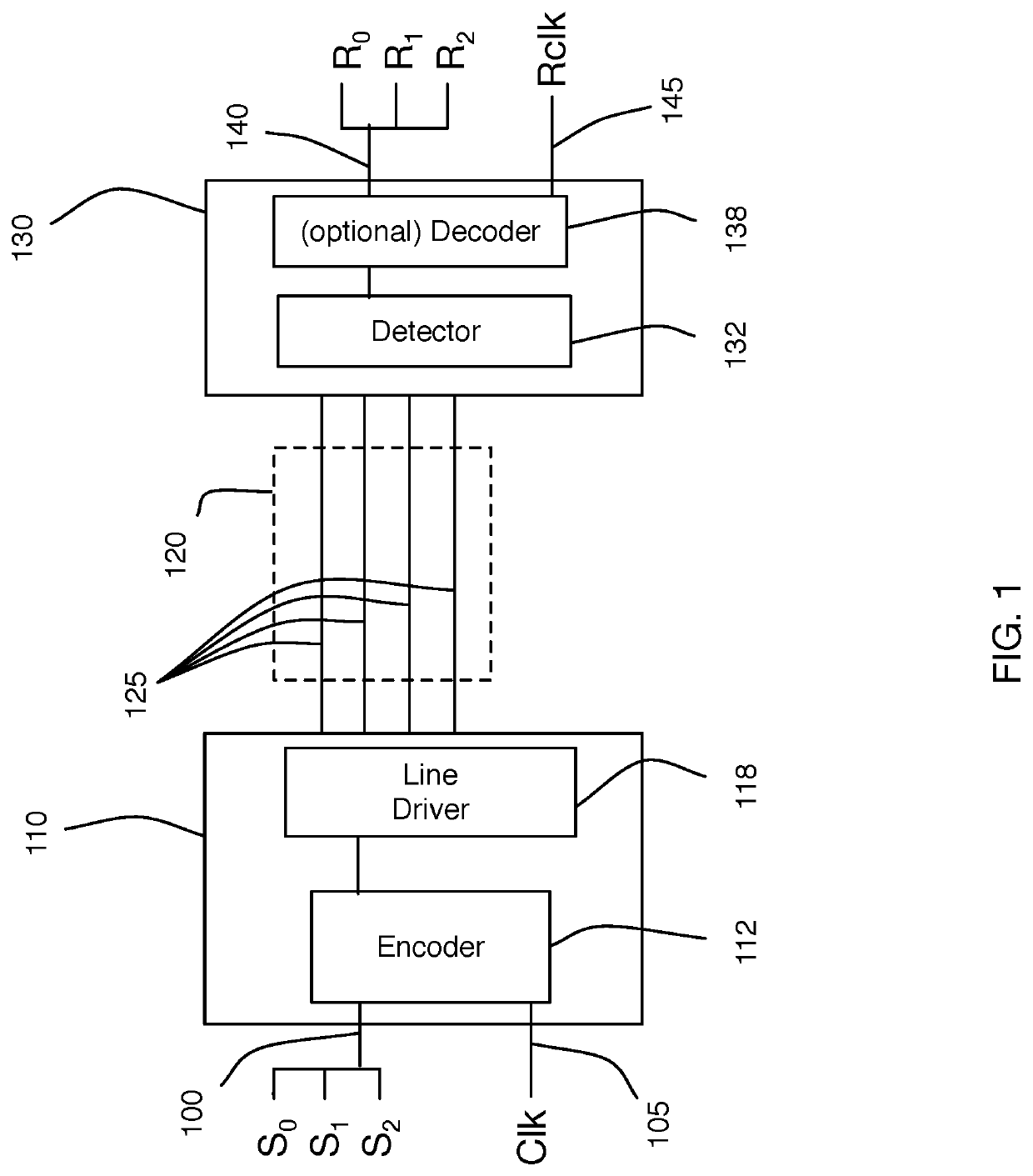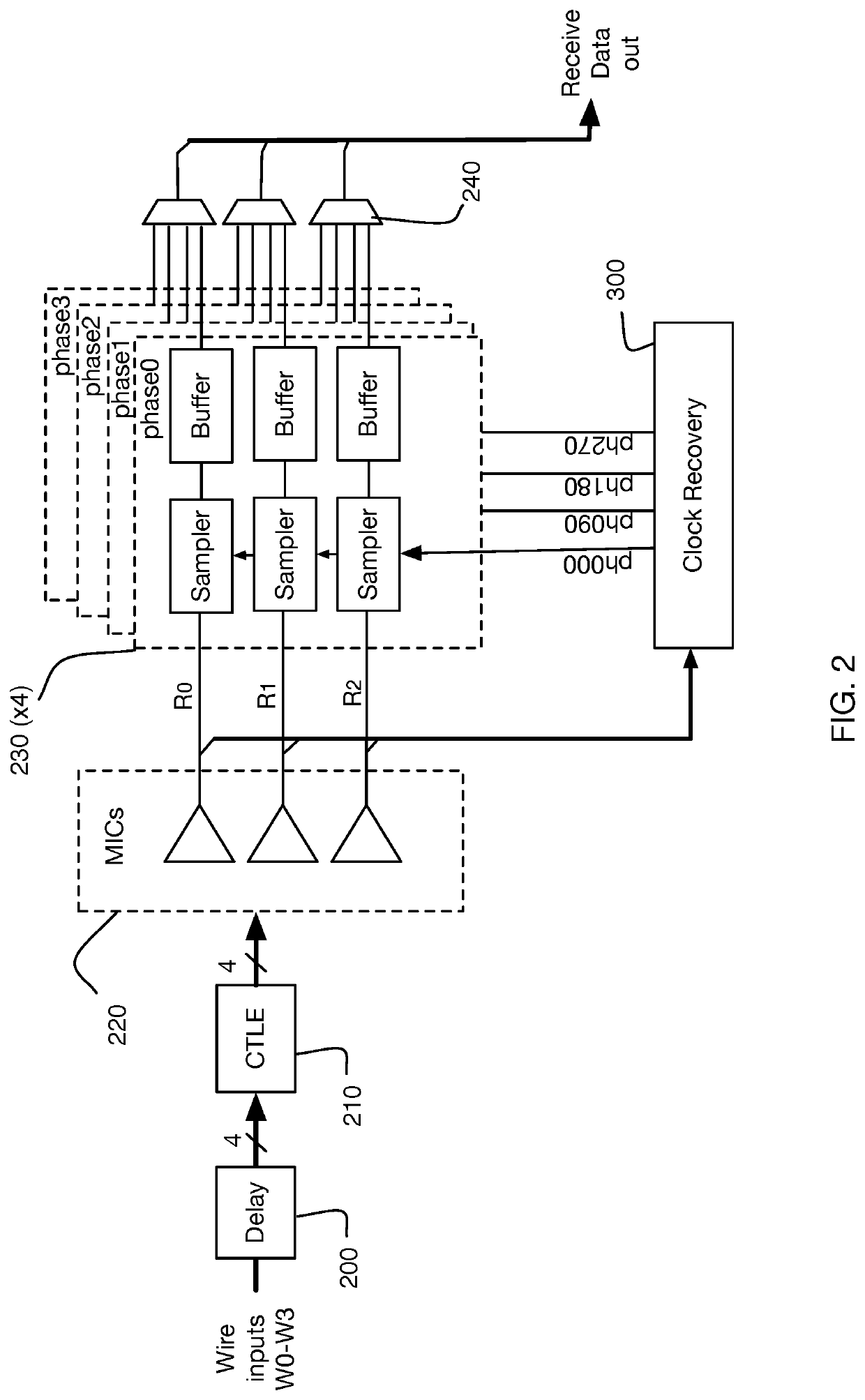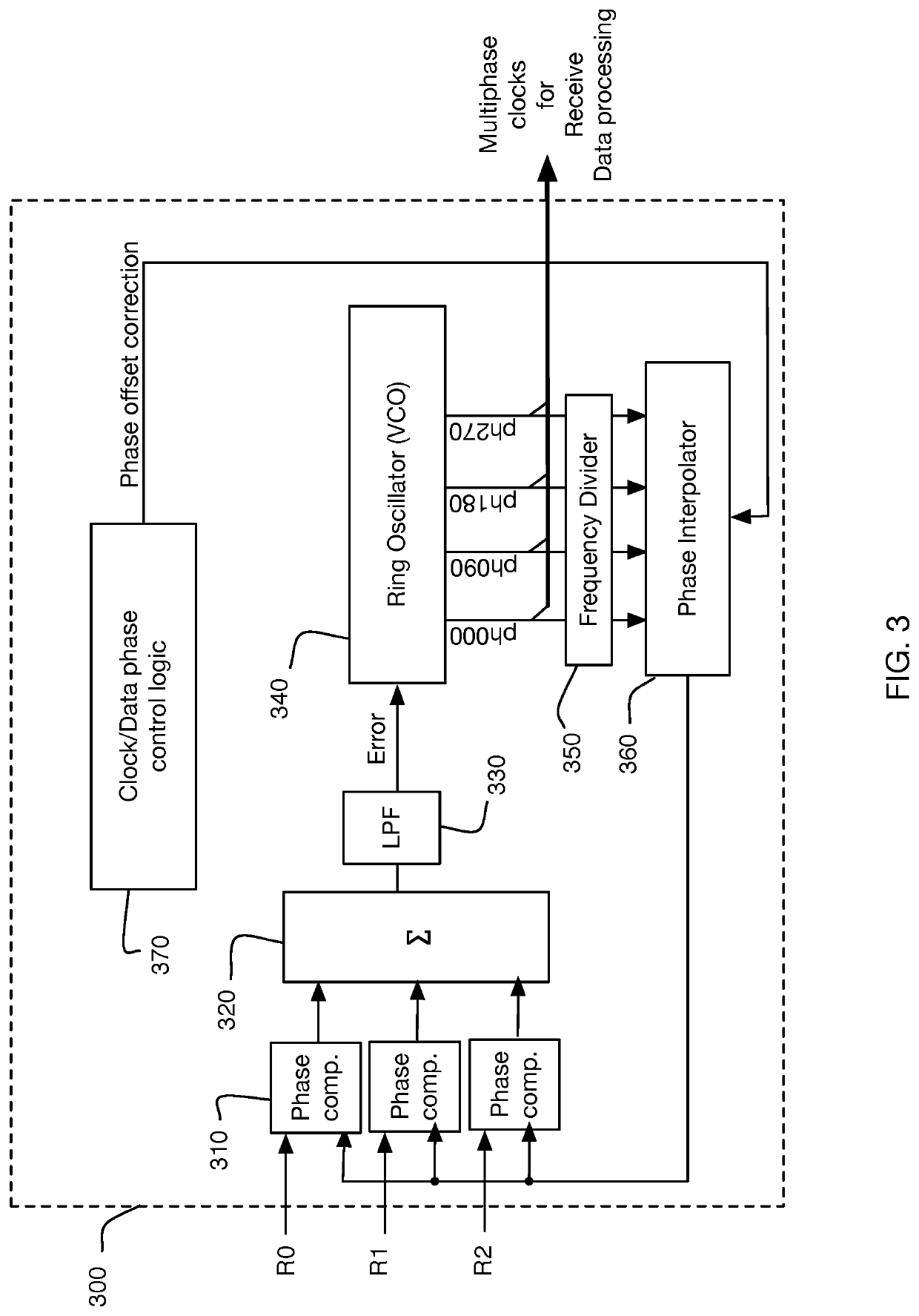Method for measuring and correcting multi-wire skew
a multi-wire skew and measurement method technology, applied in the field of communication system circuits, can solve problems such as thwarting decoding, and achieve the effect of improving the quality of received signals and reliably detecting data values transmitted over communications systems
- Summary
- Abstract
- Description
- Claims
- Application Information
AI Technical Summary
Benefits of technology
Problems solved by technology
Method used
Image
Examples
Embodiment Construction
[0033]As described in [Cronie I], vector signaling codes may be used to produce extremely high bandwidth data communications links, such as between two integrated circuit devices in a system. Multiple data communications channels transmit symbols of the vector signaling code, acting together to communicate codewords of the vector signaling code. Depending on the particular vector signaling code used, the number of channels comprising a communications link may range from two to eight or more. Individual symbols, e.g. transmissions on any single communications channel, may utilize multiple signal levels, often three or more.
[0034]Embodiments may also apply to any communication or storage methods requiring coordination of multiple channels or elements of the channel to produce a coherent aggregate result.
Input Sampling Circuits
[0035]Conventional practice for a high-speed integrated circuit receiver includes terminating each data line (after any relevant front end processing such as amp...
PUM
 Login to View More
Login to View More Abstract
Description
Claims
Application Information
 Login to View More
Login to View More - R&D
- Intellectual Property
- Life Sciences
- Materials
- Tech Scout
- Unparalleled Data Quality
- Higher Quality Content
- 60% Fewer Hallucinations
Browse by: Latest US Patents, China's latest patents, Technical Efficacy Thesaurus, Application Domain, Technology Topic, Popular Technical Reports.
© 2025 PatSnap. All rights reserved.Legal|Privacy policy|Modern Slavery Act Transparency Statement|Sitemap|About US| Contact US: help@patsnap.com



